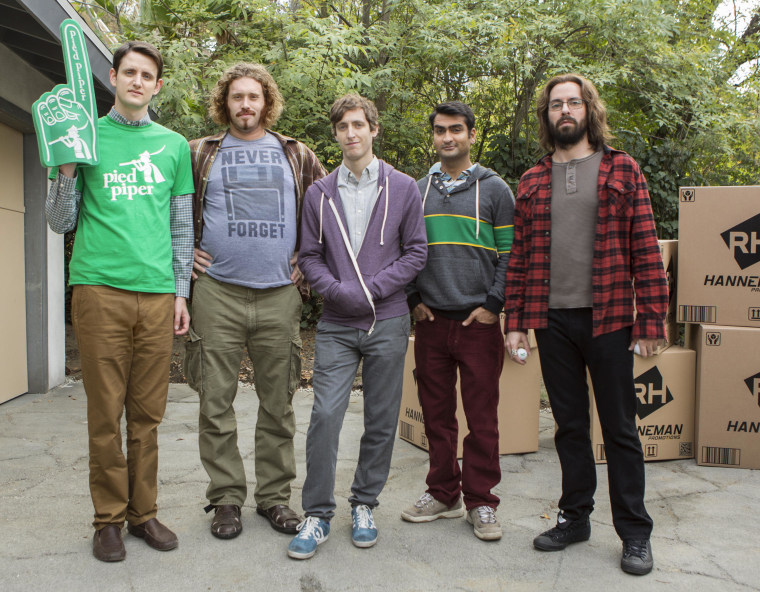Vinith Misra wanted to be an actor while a graduate student at MIT, but worried that even great actors must worry about the next job. It’s not that way in the meritocratic tech world, where Misra’s brain power has enabled a brilliant scientific career that’s really just beginning. This year, Forbes Magazine named Misra, 27, one of 2015’s “30 under 30 in Enterprise Technology.”
Now at IBM’s Watson Group, Misra has managed to find a real convergence of his interests as a tech consultant for HBO’s hit comedy “Silicon Valley," currently in its second season.
Misra provides the scientific basis for the startup Pied Piper, the fictional company that represents both the brass ring and hollow dream of the Valley. On the show, the company is involved in one of the hottest areas in tech — compression technology. Misra’s know-how provides the high-tech set-up for some low-brow punchlines, as it did for a now infamous penis joke - the analogy that inspires the show's characters to create their one-of-a-kind "middle-out" algorithm in an episode called "Optimal Tip-to-Tip Efficiency."
In an interview with NBC News, Misra shared an inside look at life in Silicon Valley.
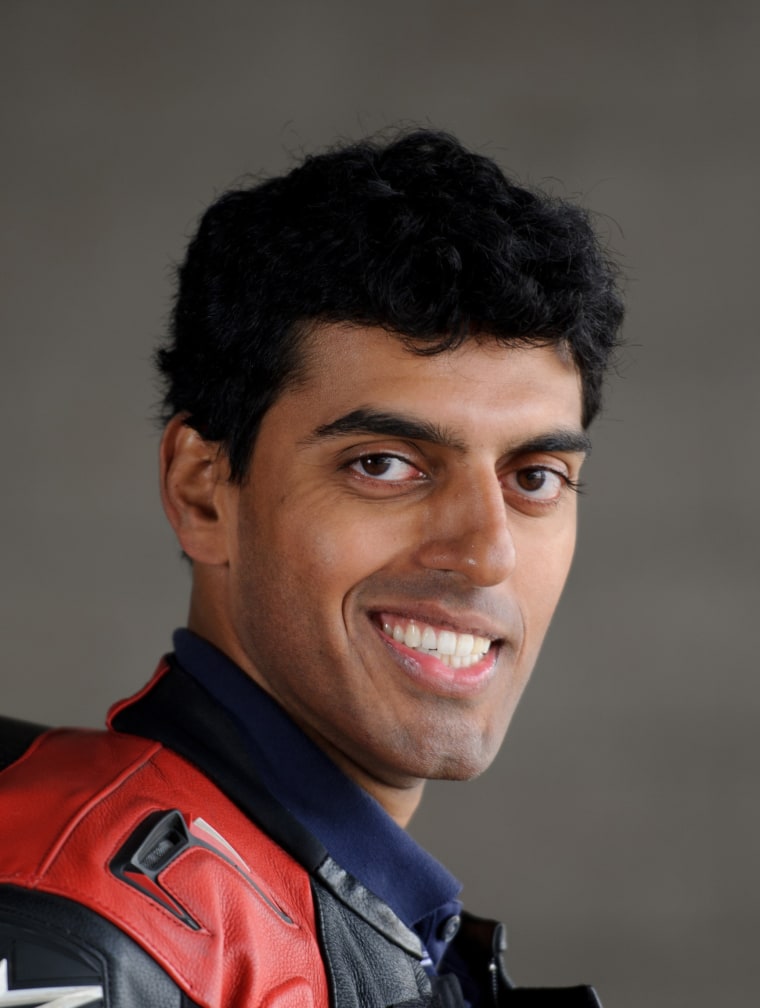
Can you explain compression technology for us non-tech majors?
Data compression involves manipulating, transforming, and reshaping data so that it occupies less space and can be sent through the internet faster. Compressing data is a little bit like packing a suitcase. You can shove socks into your shoes and pack things more efficiently ("lossless" compression), and you can also choose not to pack some of the more space-occupying and less-necessary items like that extra pair of pants ("lossy" compression).
Were you surprised compression technology could be so funny, or that it might inspire a penis joke?
I think [creator] Mike Judge and [writer] Alec Berg know how to find humor in pretty much anything, and there is no shortage of material in the world of tech. For the joke in question, they chose to keep the analysis as dry and technical as possible, and I think that's why it worked so well. This season there are a couple other mathematical jokes that I helped with, but it's very hard to live up to the original.
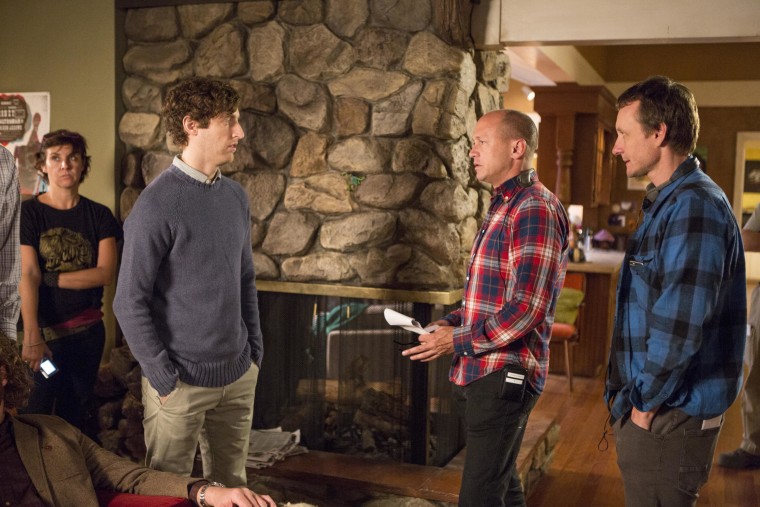
How real is the tech in the show? Is the code all for show, or is it plausible enough to make your colleagues say, “Why that sounds derivative of Vinith’s work in Distributed Scalar Quantization for Computing”?
As technical consultants on the show, we were tasked with creating technical plot lines and algorithms to be featured in the show. Our approach was similar to the fictional fossilized mosquitos used in Jurassic Park: not 100% scientifically plausible, but nonetheless thought-provoking --- even for experts in the field. The design for the middle-out algorithm, for instance, suggests that there exists "hidden structure'' in many data sources that existing compression algorithms fail to exploit. Moreover, while I don't think we're going to see Pied Piper's algorithms deployed any time soon, the level of accuracy and detail the show's producers wanted to capture was refreshing.
I'm particularly excited about the energy that the show has generated in the compression community. IBM recently partnered with Stanford to convene the first-of-its-kind Stanford Compression Forum, which was partially inspired by the show. I remain amazed by the names we were able to bring together, and it was only possible because of the show. It's a good time to be working in compression.
Mike Judge is a man of comedy - from Beavis and Butthead to King of the Hill. You are man of science. Do any of your professional friends frown on this sort of fraternization?
The response has actually been overwhelmingly positive, especially since many of my friends in academia (and in tech) watch the show, and in fact grew up watching Beavis and Butthead. If anything, the show has given me a limitless supply of ice-breaking conversation.
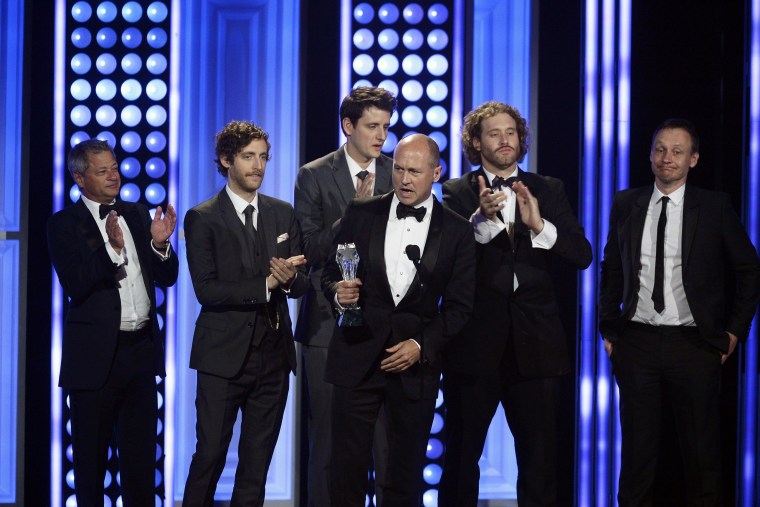
Where did your own interest in film come from? And why didn't you pursue it?
I fell in love with theater and film a long time ago, and pursued it pretty seriously as a graduate student (at MIT). I toyed with making it a career at one point, but it became gradually apparent that I wasn't cut out for that. Tech, on the other hand, fits me like a glove. I'm grateful that the show has given me a chance to indulge both of these interests.
What about your family background? Were you one of the kids always destined for MIT?
No surprises here. My parents were both born in India and came here as South Asian software developers, lured to the Bay Area via tech jobs in the mid-90s. (My father, V.J. Misra still works at Cisco; My mother Sunitha, works as a developer in North Carolina). I grew up among many Asian Americans in Fremont, California. I saw a “60 Minutes” feature on wearable tech at MIT's Media Lab when I was in 5th grade, and I knew right away where I was headed. The path was pretty circuitous: over the years my interests jumped from game development, to physics, to circuit design, to information theory, and finally to the research wing of IBM's Watson Group, where I am now.
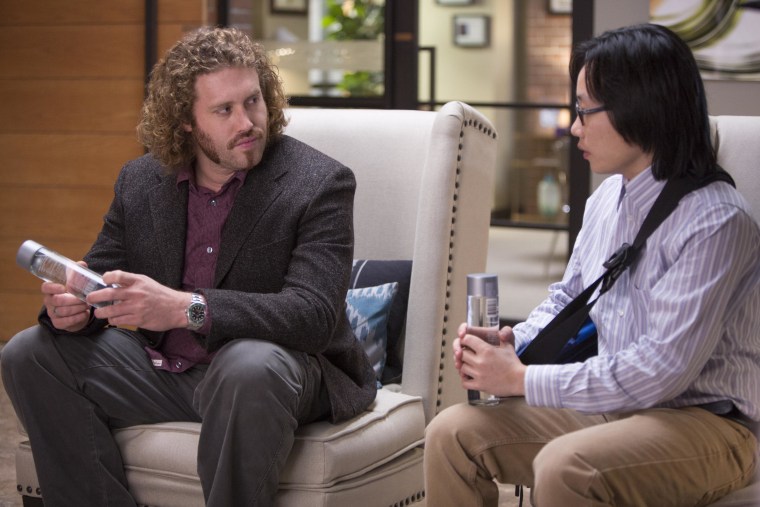
What sort of shows did you watch growing up?
It may be telling that my favorite Power Ranger was Billy. On a similar note, I watched tons of Star Trek: The Next Generation, and Geordi LaForge, who served as the Starship enterprises' chief engineer, was the closest thing I had to a celebrity role model. I also grew up watching Mike Judge's series King of the Hill, which makes my involvement with Silicon Valley particularly surreal.
Did you ever wish you saw more South Asians or Asian Americans on TV?
People often don't realize how empowering it can be for kids to see people on screen who look like them. There wasn't much of that for me and my friends when we were growing up, but things are improving a lot. To quote Aziz Ansari, "My last three roles were Randy, Chet, and Tom." I'm optimistic.
Do you ever push for more Asian Americans on Silicon Valley?
That's a bit out of the scope of my work as a technical consultant, but I'd argue that Silicon Valley is a great example of what Asian-American representation *should* be. Asian characters aren't caricatures, and their ethnicity is but one of many things that defines them. Having grown up, lived, and worked in the Valley, it feels very authentic to me.
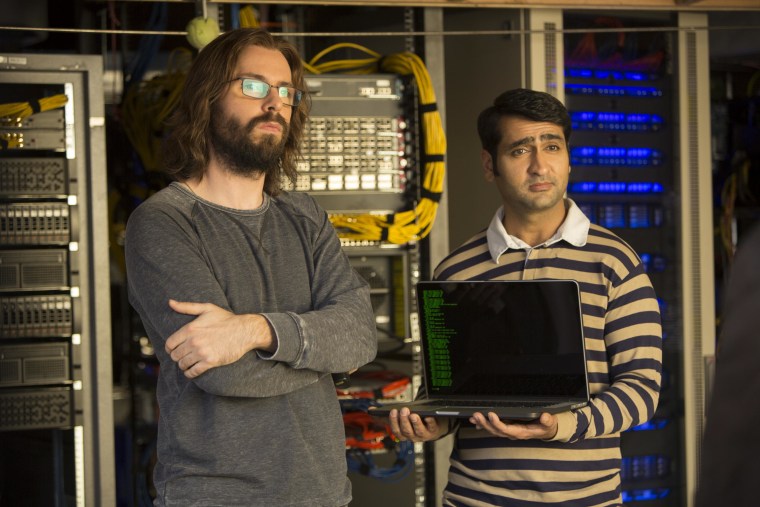
Who are your favorite characters in the show?
All of the characters are amazing, but I've been a big Martin Starr fan for years, and I love what he's been doing with Gilfoyle. I also have to mention that Jimmy Yang has been absolutely killing it as Jian Yang in Season 2.
The show satirizes elements of Silicon Valley and startup culture -- the smugness, the excessive wealth, the self-importance -- does part of you want to play a role in changing that?
In typical Mike Judge fashion, the show takes realities of the Valley and startup culture and amplifies them to 11. But while there is definitely no shortage of things to poke fun at around here, there is also a lot of truth to Peter Gregory's quote from Season 1: "Silicon Valley is the cradle of innovation." When you look for instance at the kind of work that my colleagues at IBM are doing with healthcare and life sciences, or at the recent explosion of free education resources, it's hard to be a pessimist.
Is there a difference between the money guys and the pure technologists like yourself? You need it all to work, I suppose, but in the hierarchy, the coders rule?
The "coder master race" belief is definitely something that people associate with startup culture, but I would argue that it is actually pretty poisonous. I believe that people don't work well with people they don't respect, and the best-run companies have a culture that makes everyone feel like they matter.
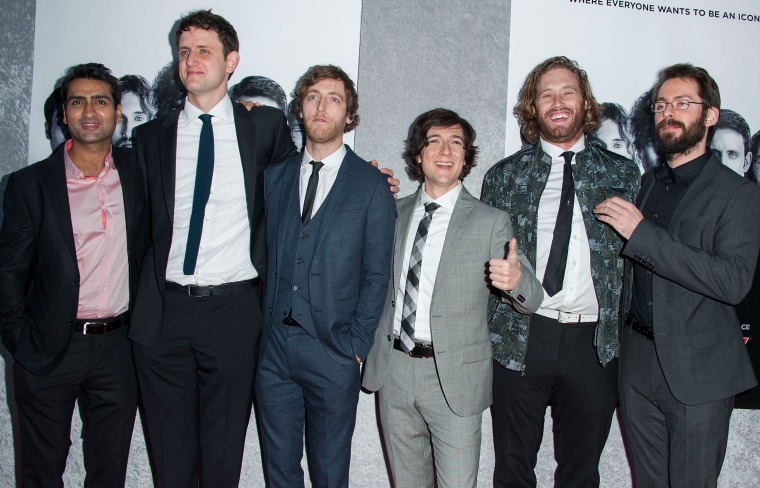
Interview was edited for clarity and length.
Like NBC Asian America on Facebook and follow us on Twitter.
